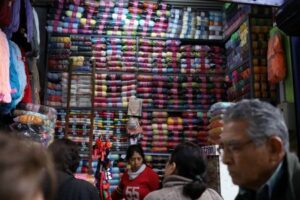By Anthony Esposito and Adriana Barrera
MEXICO CITY (Reuters) -The Pan American Health Organization (PAHO) said on Wednesday it is in advanced talks with vaccine makers to buy additional COVID-19 shots for its member states to complement bilateral deals, donations, and doses they are receiving via the COVAX mechanism.
PAHO has reached an agreement with Chinese vaccine maker Sinovac, and is expecting to sign new accords soon to buy vaccines with emergency use listing approval from other suppliers for 2021 and 2022, PAHO Director Carissa Etienne said.
“PAHO has helped COVAX deliver 50 million doses to our region, including nearly 14 million donated doses, and we have the capacity to quickly scale this support, so we urge countries not to delay their donations as lives hang in the balance today,” said Etienne.
The agreement with Sinovac is to buy 8.5 million vaccine doses for 2021 and some 80 million doses next year, said Jarbas Barbosa, assistant director of PAHO, the regional branch of the World Health Organization (WHO).
“We are in negotiations with all the producers who have emergency use authorization from the WHO … and we are in fairly advanced negotiations to probably sign this week or next week with two other producers who have offered vaccines for the last quarter of 2021 and for 2022,” said Barbosa.
Over a billion COVID-19 vaccine doses have been administered in the Americas and 35% of people in Latin America and the Caribbean have been fully vaccinated, but stressed that coverage has not been uniform, said Etienne.
Canada, Chile, Uruguay, and Puerto Rico have fully vaccinated over 70% of their populations, while 10 countries and territories in the region have yet to vaccinate 20% of their populations and Haiti has inoculated less than 1% of its people.
Last week the Americas saw nearly 1.5 million new infections and more than 26,000 COVID-19 related deaths, more than any other global region, according to PAHO figures.
(Reporting by Anthony Esposito and Adriana Barrera; editing by Diane Craft)





